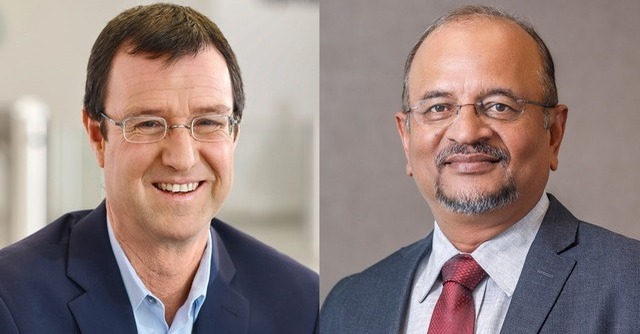
Creating a digital patient twin is an ultimate vision: Peter Schardt


Medtech company Siemens Healthineers, specializing in precision healthcare, has taken several steps in the last few months to tap into the burgeoning healthtech landscape in the country. Apart from laying the foundation for a ₹1,300 crore campus in Bengaluru, the company has also entered into a partnership with industry body Nasscom for the Startup Accelerator Program to nurture and expose Indian startups to a global stage.
In an interview, Peter Schardt, chief technology officer, and Dileep Mangsuli, head of Siemens Healthineers Development Center, spoke about the healthcare ecosystem in the country and the opportunity it holds. Edited excerpts:
How are you collaborating with the startups?

Schardt: We really want to reach as many patients as possible and offer them access to quality healthcare. In order to do so, we need partners in the ecosystem – customers, clinical collaborators, government authorities, and academia. Apart from them, the upcoming startups also play a crucial role here. The Nasscom partnership that we announced in March is in this direction.
We have taken these startups under our fold to mainly help them navigate through the regulatory landscape. Not just in India, we help them get regulatory approvals in other parts of the world.
How is the healthtech landscape in India changing?

Mangsuli: A lot has changed especially after the pandemic struck. In terms of spending, different governments are increasing their spending to focus on creating access to quality healthcare. For India particularly, to bring the next level of healthcare to people, digitalisation is going to play a huge role.
In this context, the National Digital Health Mission aims at creating vertical patient data with corresponding horizontal data on specific diseases. This convergence is instrumental in offering precision healthcare, which means the disease is detected accurately and at a much earlier stage.
Schardt: Creating a digital patient twin is an ultimate vision where you have an individualized understanding of a disease based on data. You are able to characterize by images, lab results, genome sequencing, and many other data sources the exact situation to understand what is really going on to make the right decisions and propose the treatment strategies.

What are the skill challenges in the healthtech sector?
Mangsuli: In healthtech, the skills need to be very wide and deep. It is important to ensure that the solutions developed are future-proof, given the high cost of investment. In this context we see a lot of cloud-based technologies emerging in the field, so need people with appropriate expertise to build these solutions. The use of cloud technologies has also made it important to cater to emerging threats and cyberattacks. So we need professionals equipped to handle these cybersecurity challenges too. Lastly, user experience needs to be given due importance.
Schardt: The demand for healthcare professionals is increasing steadily, but the supply hasn’t been able to keep up with it. Here is where technology and automation come into play. It augments the skills of healthcare professionals and helps them be more productive, efficient, and quick.

What is the role of generative artificial intelligence in healthcare?
Schardt: AI in general, and generative AI in particular, have huge potential. The specific use cases include the way information is presented to the physician, extracting relevant information and making it easily available whenever needed. We believe that these technologies can help in creating intelligent assistants to offer information that is actionable. That said, in the medical field, trust is established over time and there are several regulatory requirements also to be met before their use.
At Siemens Healthineers we don't use generative AI for clinical use cases, but have deployed it for our technicians who are servicing equipment in the field.

